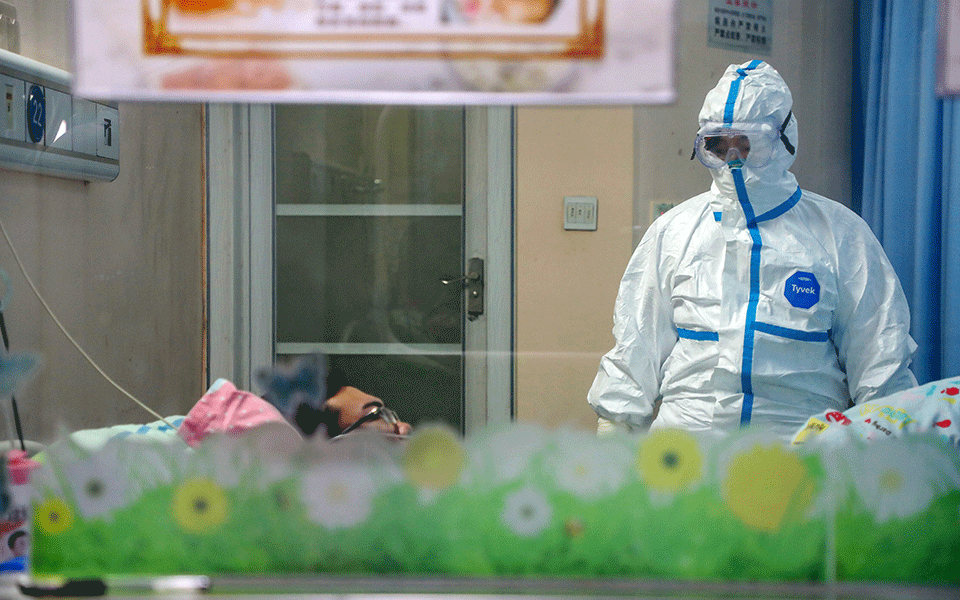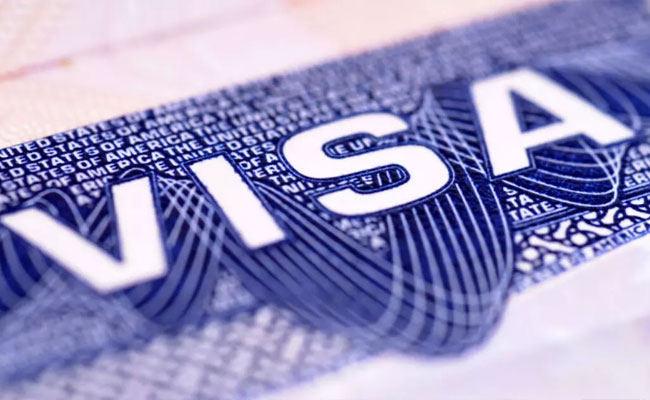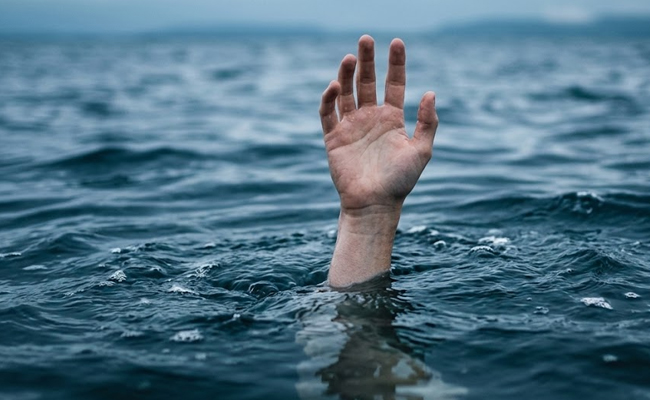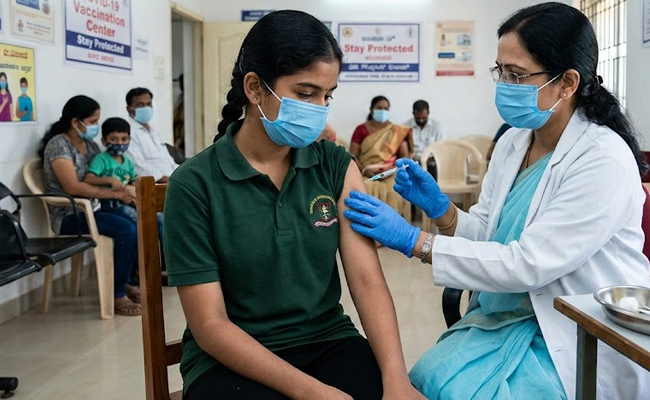Beijing: China warned Wednesday that a SARS-like virus that has killed nine people, infected hundreds and spread to other countries could mutate, as authorities scrambled to contain the disease during the Lunar New Year travel season.
The new coronavirus has caused alarm for its similarity to SARS (Severe Acute Respiratory Syndrome), which killed nearly 650 people across mainland China and Hong Kong in 2002-2003.
The illness is transmitted via the respiratory tract and there "is the possibility of viral mutation and further spread of the disease," National Health Commission vice minister Li Bin said at a news conference in Beijing.
The World Health Organization (WHO) was to hold an emergency meeting Wednesday to determine whether to declare a rare global public health emergency over the disease, which has also been detected in the United States, Taiwan, Thailand, Japan and South Korea.
The Chinese government has classified the outbreak in the same category as the SARS epidemic, meaning compulsory isolation for those diagnosed with the illness and the potential to implement quarantine measures on travel.
But they still have not been able to confirm the exact source of the virus, which has infected 440 people in 13 provinces and municipalities.
"We will step up research efforts to identify the source and transmission of the disease," Li said. A prominent expert from China's National Health Commission confirmed this week that the virus can be passed between people.
However, animals are suspected to be the primary source of the outbreak, as a seafood market where live animals were sold in the central city of Wuhan was identified as ground zero for the virus.
Countries have been intensifying efforts to stop the spread of the pathogen -- known by its technical name 2019 Novel Coronavirus (2019-nCoV) -- as the number of cases jumped, raising concerns in the middle of a major Chinese holiday travel rush.
This week, China celebrates the Lunar New Year, the most important event in the Chinese calendar with hundreds of millions of people travelling across the country to celebrate with family.
On Wednesday, the commission announced measures to contain the disease, including disinfection and ventilation at airports, train stations and shopping centres.
"When needed, temperature checks will also be implemented in key areas at crowded places," the commission said in a statement. Wuhan has urged people to stay away in a bid to contain its spread.
Police were conducting spot checks for live poultry or wild animals in vehicles leaving and entering the city, state media said.
The local government has cancelled public activities during the holiday, including the annual prayer-giving at the city's Guiyan Temple -- which attracted 700,000 tourists during last year's holiday. Tour groups heading out of the city have also been cancelled.
Let the Truth be known. If you read VB and like VB, please be a VB Supporter and Help us deliver the Truth to one and all.
London (PTI): The UK on Wednesday imposed a study visa ban on four countries accused of using the route as a backdoor entry to seek permanent refuge in the country, as part of a wider clampdown on the soaring rates of asylum applications.
The so-called "emergency brake" on student visas applies to Afghanistan, Cameroon, Myanmar and Sudan, with Afghans also subject to a skilled worker visa ban following a major surge in asylum claims from these countries.
The move comes as UK Home Secretary Shabana Mahmood introduces new legislation in Parliament this week, with the visa brake to be introduced via an Immigration Rules change on Thursday to come into force on March 26.
"Britain will always provide refuge to people fleeing war and persecution, but our visa system must not be abused," said Mahmood.
“That is why I am taking the unprecedented decision to refuse visas for those nationals seeking to exploit our generosity. I will restore order and control to our borders,” she said.
According to official statistics released by the Home Office alongside the visa ban announcement, asylum applications by students from Afghanistan, Cameroon, Myanmar and Sudan rocketed by over 470 per cent between 2021 and 2025 – making them among the most likely nationalities to claim asylum.
Meanwhile, the number of Afghans on work visas claiming asylum now outstripping the number of visas issued.
In what has been described as an “unprecedented step”, the Home Office said it will end sponsored study visas from all four countries and skilled worker visas for Afghan nationals.
“Tough action is required as asylum claims from legal routes have more than trebled since 2021 – making up 39 per cent of the 100,000 people who applied last year. In total, 133,760 people have claimed asylum after arriving legally in the past five years,” the Home Office said.
It said these refugees end up having to be accommodated at the expense of the British taxpayer, with an “above average proportion” of people from the four countries claiming destitution.
“Asylum support is currently costing more than 4 billion pounds a year – with nearly 16,000 nationals from the four countries currently supported at public expense, including over 6,000 in hotels," it added.
According to official data, between 2021 and the year ending September 2025, the proportion of Afghan asylum claims to study visas issued was 95 per cent, applications by students from Myanmar soared 16-fold over the same period and claims by students from Cameroon and Sudan spiked by more than 330 per cent.
The government pointed to its success in reducing student asylum claims by 20 per cent over the course of 2025, but stressed that further action is needed as those arriving on study visas still make up 13 per cent of all claims in the system.
The visa ban announcement comes on the back of Mahmood's announcement earlier this week that asylum status in the UK will be temporary, to be reviewed after 30 months.





